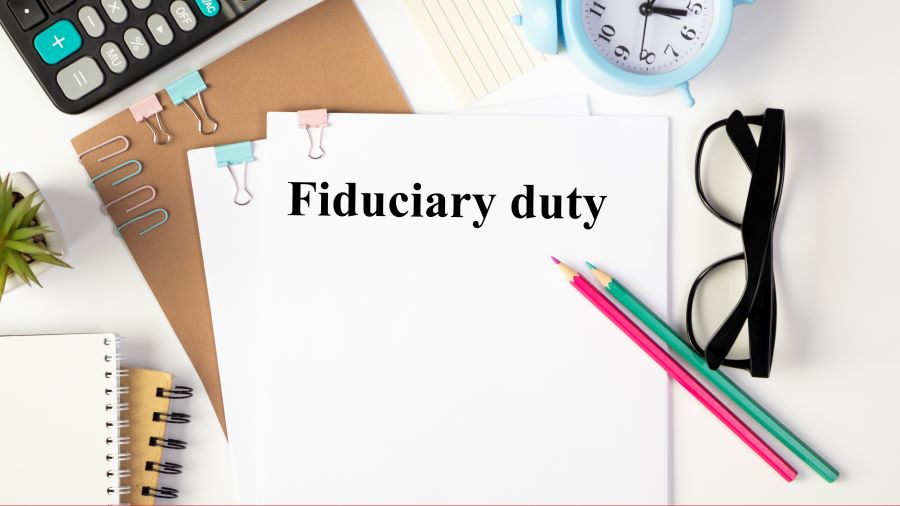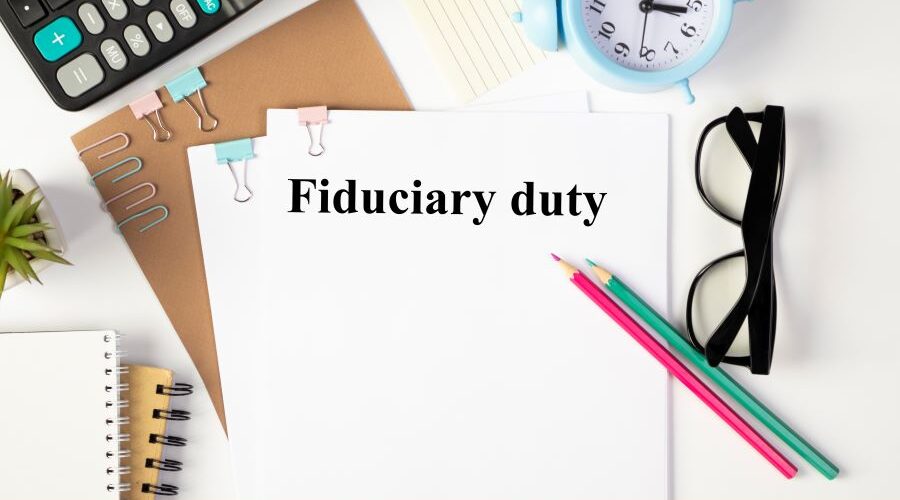What does “fiduciary” mean?
How do you know if you can trust a financial advisor? One of the ways is to know if he or she is a fiduciary. 
Why is this such a big deal? Because clarity is necessary when understanding whom you should partner with to help you with your wealth – whether you’re growing it, protecting it or passing it on to the next generation. Women are especially sensitive to this because of the challenges we often face within society.
Ads for financial advisors on television and social media advertise that they are “fiduciaries,” so let’s unpack that term a bit. There are actually two aspects to the word “fiduciary” – fiduciary as a person and fiduciary duty.
Fiduciary as a Person
According to the Consumer Financial Protection Bureau (CFPB), a fiduciary is someone who “manages money or property for someone else. When you’re named a fiduciary and accept the role, you must – by law – manage the person’s money and property for their benefit, not yours.”
Further, the CFPB says that a fiduciary must act in the best interest of their client(s) by managing their money and property carefully, never mixing them with others’ property, and by keeping good records.
Fiduciary as a Duty
The SEC makes it very clear: the investment adviser cannot place [his/her/its] own interests ahead of the interests of its client.

Here is a short video that describes the ethical behaviors that certified financial planners (CFP®) like myself must uphold, including:
- Loyalty – placing the client’s interest above that of the advisor and firm.
- Care – including skill, prudence and diligence, taking into account the client’s risk tolerance, goals and personal circumstances, obtaining informed consent, disclosing conflicts of interest and managing these in the client’s favor.
- Following instructions – complying with the terms of the engagement and following the client’s reasonable and lawful instructions
How I Put My Clients’ Interests Ahead of My Own
As a CFP®, it is my duty as a fiduciary to act in an ethical fashion. Importantly, my work is not product or sales-driven. Being an independent financial advisor allows me to work with clients in many ways according to their individual needs.
For example, I’m able to offer behavioral financial coaching, working with clients to help them understand how they got to their present situation and what’s impacting them from moving forward. Together we’ve experienced many “Aha” moments. I listen and give my clients room to process.
Furthermore, I’m able to hire the most appropriate partners to work with to meet the individualized needs of my clients, whether they need a certain trading ability, a certain type of investment strategy, a certain custodian, etc. I take the time to do the necessary due diligence, and I have the autonomy to use different investment and compensation strategies.
My practice is a reflection of my values. My space is a place to feel peace. I’m genuine and attuned to the needs of my female clients.
Listen to Your Inner Voice
As women we need to listen to ourselves. If your first meeting ends with a product being pitched to you, you may want to get up and walk away. If you feel that something is not right for you – always listen to your gut. It’s warning you that you’re not being treated in a fiduciary manner.
Most people in the financial service industry seem very nice. After all, it’s a people business. But please be aware that being nice and being caring about your well-being are two different things.
Tags: Black CFP Pro, Black Finance Expert, Black Financial Advisor, Black Financial Planner, Black Woman Finance Expert, black woman financial advisor, Black Woman Financial Planner, Fiduciary, Smart Money, Smart Women, Zaneilia Harris



